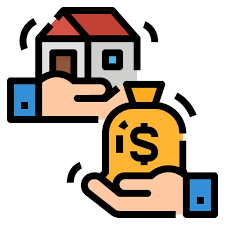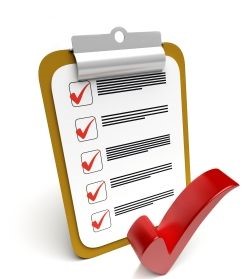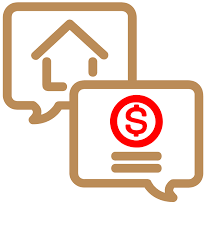
FROM THE TOP BANK REFINANCES LAW FIRM IN TORONTO
When you obtain a mortgage, a banker lends you with the finances necessary to buy a house in return for your agreement to make monthly payments in accordance with the terms of your mortgage contract. However, what if you desire to reduce your financing expenses or increase your borrowing capacity using your home equity?
the answer is mortgage refinancing

According to the Canadian Mortgage and Housing Corporation (CMHC), refinancing mortgages is a sort of lending that enables owners to pay off their previous mortgage in full by receiving another financing. This new loan has its own conditions and an interest rate that is distinct from the previous loan. In basic terms, a mortgage refinancing occurs when you pay off your existing mortgage and begin a new one with the same or a different lender. You may choose to refinance your mortgage in order to get a cheaper interest rate, gain access to the equity in your property, or consolidate your obligations. However, early loan repayment will result in a significant prepayment penalty, making mortgage refinancing riskier. Ensure that you do enough research or consult a professional resource.
Why should you refinance your mortgage?
Refinancing a mortgage is not just for the purpose of obtaining a cheaper interest rate. Mortgage refinancing may also be utilized to get access to the equity in your house and consolidate debt. Contact Ameer Law Office, an experienced bank refinance Lawyer in Toronto.
Obtaining a lower rate of interest
Refinancing your mortgage to get a lower interest rate might result in significant savings over period, based on the early payment penalty and the amount of your current mortgage. Expect to pay a three-month interest charge if you have a variable rate mortgage; if you have a fixed rate mortgage, you will pay the higher of three months’ interest or the interest rate differential penalty (IRD). Avoid being deterred by fines; knowing the statistics enables you to determine if a refinancing would save you money.
To have access to the equity (monetary value) in your house
You may be able to access the equity in your house by refinancing your mortgage. You may be able to borrow up to 80% of the value of your property, minus any existing debt. This means more money for investments, house improvements, or your children’s education. There are various methods to get this equity, including paying down your mortgage, opening a home equity line of credit (HELOC), or mixing and lengthening your mortgage with your present lender.
Debt consolidation via refinancing
If you have sufficient equity in your house, you may be able to use it to pay off high-interest debt through a mortgage refinancing. For instance, if you have many outstanding obligations, such as a vehicle loan, a line of credit, or credit card payments, you may be able to combine them via one of the numerous mortgage refinancing alternatives available.
Modes of Refinancing your mortgage

There are several methods for refinancing a mortgage. These options include early termination of your mortgage contract, obtaining a home equity line of credit, or consolidating and extending your mortgage with your present lender.
Early termination of your current mortgage deal
You could consider paying off your mortgage early in order to achieve a reduced interest rate or to have access to the equity in your property. In this instance, you pay off your current mortgage and get a new one from any lender. Your bank will charge you a prepayment penalty if you pay off your mortgage early, which is typically equivalent to around three months’ interest payments. If the cost of the prepayment penalty is justified in relation to your new mortgage rate, then breaking your mortgage may still be worthwhile.
Increase your available credit with the addition of a home equity line of credit (HELOC)
A home equity line of credit enables you to borrow against the equity in your house at your convenience. A HELOC operates similarly to a credit card, but since it is a secured loan (backed by the equity in your house), the interest rates are much lower. If you withdraw funds from it, you will be liable for monthly interest-only payments on the remaining amount. A home equity line of credit is available via your present lender and a select group of other lenders.
Consolidate and extend your current mortgage
Your present mortgage lender may give you a ‘blended rate,’ which is effectively a ‘mix’ of your current mortgage rate and any new funds borrowed at current market rates. Because blended rates are nearly always higher than the most competitive mortgage rates on the market, it’s critical to compare the blended rate to the savings associated with early repayment.

Costs associated with mortgage refinancing
The cost of refinancing your mortgage is determined by the approach used to get access to equity or reduce your interest rate. Whichever option you choose, you will always pay legal fees, since a lawyer will be required to alter the finance on title. The good news is that many brokers and/or lenders will reimburse this expense if your mortgage balance exceeds $200,000.
Mortgage refinancing expenses include mortgage registration and legal fees, since you are re-financing your existing mortgage. Additionally, you will need to pay for a house assessment. Other expenses vary according to the date and location of the refinancing.
You will be levied a mortgage discharge fee if you refinance by moving lenders. Discharging entails, the addition of your lending institution to your property title and the deletion of your previous lender.
If you refinance before the term of your mortgage is over, you may be subject to mortgage prepayment penalties, depending on the kind of mortgage. You will be required to pay three months’ interest on closed variable-rate mortgages as a penalty. The penalty on closed fixed-rate mortgages is the greater of three months’ interest or the interest rate difference.
There are no prepayment penalties on open mortgages. Additionally, you may avoid penalty fees by refinancing your mortgage at the conclusion of your term.
How much will be refinancing my mortgage cost?
You will be responsible for legal expenses, house appraisal fees, and mortgage registration fees, but in some instances, you may avoid prepayment penalties and mortgage discharge fees. If you continue with the same lender, you may avoid the mortgage discharge cost. If you refinance with another lender and leave your existing lender, you will be required to pay a mortgage discharge fee.
If you refinance at the conclusion of your term, you will avoid mortgage penalties. If you refinance before to the end of your term, you will be penalized if you refinance at existing mortgage rates. You may, however, blend and prolong your mortgage rate, which will combine your mortgage rate with current rates. This avoids mortgage penalty payments, albeit your interest rate will not be completely updated to current rates.
Where to get further Legal opinion
To determine if refinancing your mortgage is a smart choice, you may consult with Ameer Law Office, a Toronto Bank Refinances Law Firm, for a professional opinion. If you’re ready to refinance, we can also guide and help you through the procedure.
